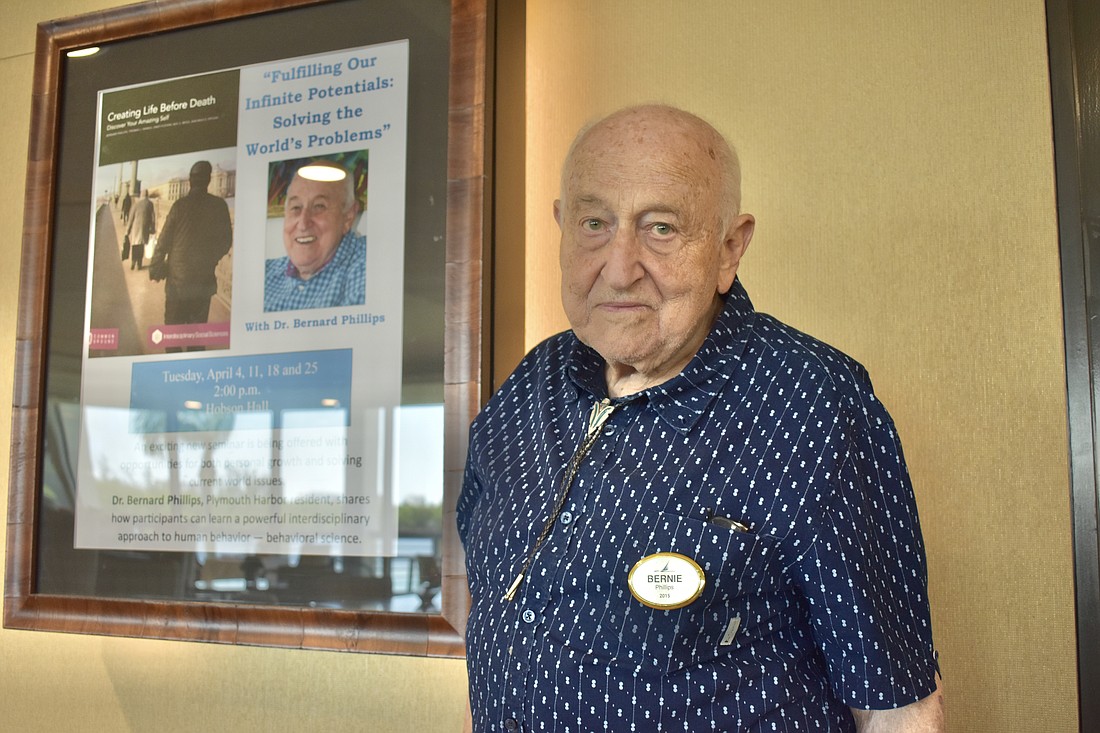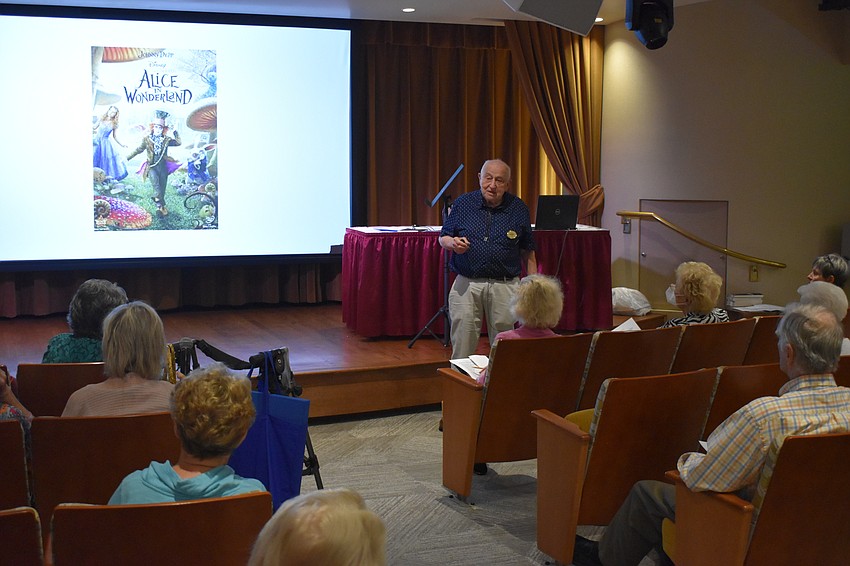- July 11, 2025
-
-
Loading

Loading

Plymouth Harbor resident and former Boston University professor of sociology Bernie Phillips wants to build a more cohesive and collaborative world, one retirement home at a time.
For the second year in a row, Phillips is offering a series of four weekly lectures at Plymouth Harbor's Hobson Hall auditorium. The lectures series is called “Fulfilling Our Infinite Potentials: Solving the World's Problems” and is based on a book that he co-authored, “Creating Life Before Death: Discover Your Amazing Self."
“My focus is on continuing in Plymouth Harbor, to make them shine out like the city on the hill,” Phillips said. “And then from there, we can go to other retirement homes. It could go to businesses, it can go to political groups — everywhere.”
Philips said to change the way the world works would require overturning our fundamental assumptions, or paradigm. It also requires looking inward before taking outward action.
“We are so far from emphasizing ourselves, it is almost unbelievable,” he said.
On a societal level, he believes there are certain issues that result from people's current outlook: a world with strict hierarchies, narrow specialization and personal conformity.
His vision is to empower individuals to avoid specialization, interacting widely between different areas. He said research indicates that smaller companies, which feature more of this type of interaction, have been shown to be more efficient.
This, he said, could have an effect on many of the world’s problems.
“(People) would share the possibility of what they're there to do, which is how to actually solve problems,” he said. “The idea there is this: to be able to help others, you have to help yourself.”
“I don’t handle bureaucracy well, so I relate to what he’s teaching,” said lecture attendee Betty Mann McQueen.
Nonetheless, she said, she has long worked in her position dealing with infrastructure in the county, in keeping with Phillips' goal of living up to one's potential.
McQueen also said that adults need to do more to increase their personal abilities. She said isolation during the COVID-19 pandemic had shown her how many struggled with basic life skills, such as cooking themselves a meal.
She said these are the issues she sees Phillips dealing with, but on a bigger scale.
One problem within the field of sociology is that sociologists and social scientists are too invested in communicating with one another, rather than with the public, Phillips said.
So Phillips decided to begin speaking to the public with his first lecture series in 2021.
It’s possible to trace everything back to a very simple concept, he said. A motto of "head, heart and hand." All you has to do is remember "The Wizard of Oz" and the qualities sought by each of Dorothy’s friends in Oz: the Scarecrow (head), the Tin Man (heart) and the Cowardly Lion (hand.)
“The academic head and heart together doesn’t exist to any great extent,” he said, adding that women have the potential to improve the field of sociology through a combination of hand and heart.
Although Phillips had a long career as a university professor, he said education doesn’t need to be about handing out diplomas, so he chose to focus on sharing his teaching at Plymouth Harbor, a continuing care retirement community, where he plans to repeat a portion of his lecture series titled “Personal and World Evolution” on the second Tuesday of every month on an indefinite basis.

Phillips said the staff at Plymouth Harbor has been supportive of his efforts. He noted that Beth Watson, vice president of foundations, suggested taking the cause beyond Plymouth Harbor to invite the whole community.
Phillips plans to take his message even farther afield. In 2024, he hopes to visit the American Sociological Association’s annual meeting in Montréal, to promote his ideas to fellow social scientists.
If his plan unfold as he hopes, Phillips sees a world that’s soon to be on an upward trajectory.
“Imagine a stairway that’s wide enough for the whole human race to climb. It doesn't narrow as it gets further out. It's infinite, it keeps going, and people can move across to other areas. They can communicate and learn from others and teach others. That’s my vision, right there.”